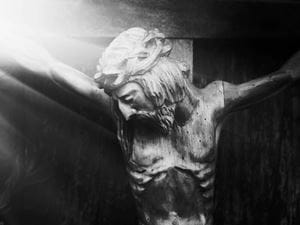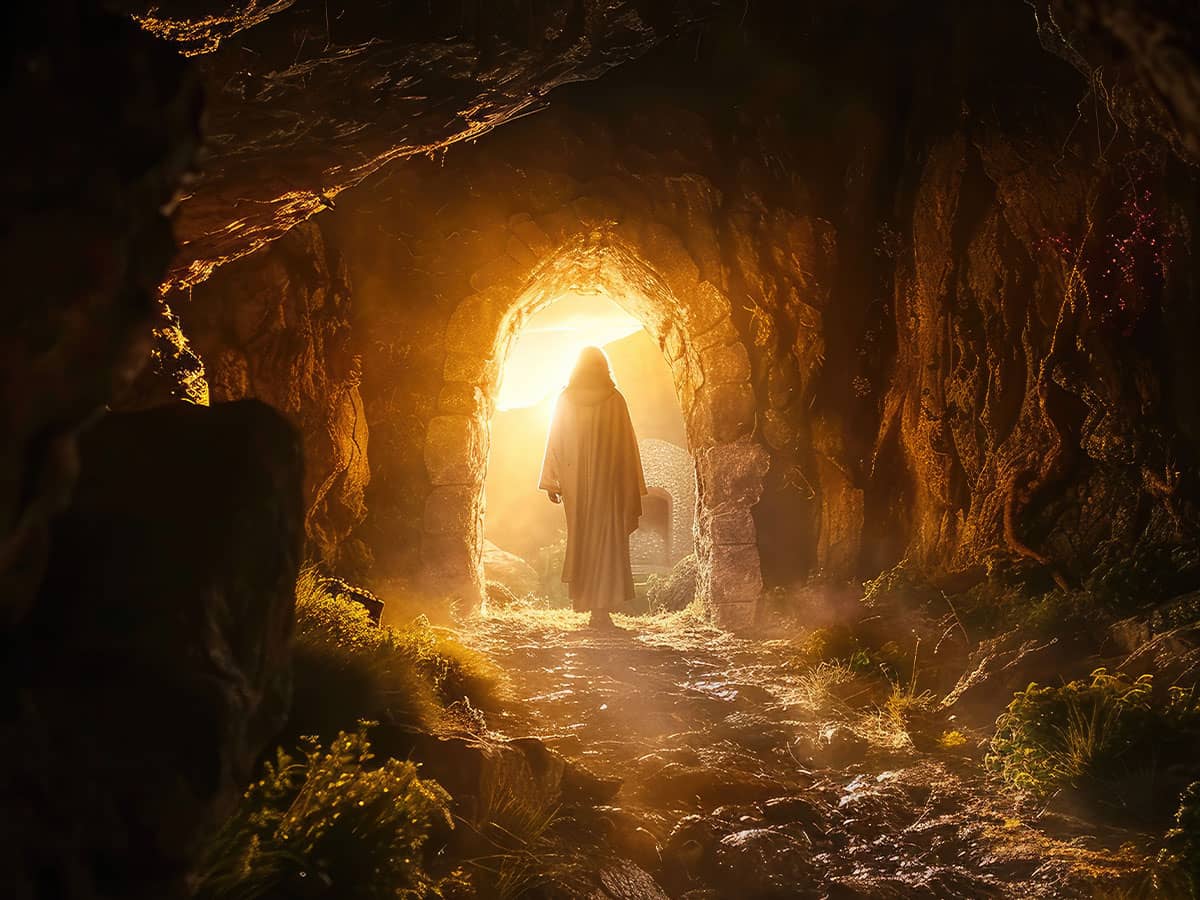
The resurrection is central to our beliefs as Christians. Not only does the resurrection witness to the immense power of Jesus Christ, the resurrection also proves to us that Jesus was who He claimed to be, the Son of God and Messiah. Jesus said, “I am the resurrection and the life. The one who believes in me will live, even though they die” (John 11:25). In that statement, Jesus also claimed to be the source of both. Apart from Christ, there is no resurrection and apart from Christ, there is no eternal life. The amazing thing about the power of Jesus is that He does more than give life, He is life, and that’s why death has no dominion over Him. In resurrecting from the grave, God reminds us of His absolute sovereignty over life and death. As we ponder the resurrection, it’s natural to wonder who was responsible for Jesus’ death and wonder why did He have to die?
One thing we need to be mindful of when we ask the question “Why did Jesus have to die?” is to be careful that we don’t call God into question here. To wonder why God couldn’t find another way to do something is to imply that the way He has chosen is not the best course of action and that some other method would have been better. Anything God does is not our way, but His way. The Bible says, “For My thoughts are not your thoughts, nether are your ways My ways, declares the LORD.” God’s thoughts are not our thoughts. They are higher than ours. The Bible also reminds us in Deuteronomy 32:4 that “He is the Rock, His works are perfect and all His ways are just. A faithful God who does no wrong, upright and just is He.” The plan of resurrection and salvation that God has designed is perfect and just and no one could have come up with anything better.
When it comes to the question of responsibility, there are many layers. One group that is responsible for Jesus’ death of Jesus were the religious leaders of Israel. The Bible tells us, “the chief priests, and the scribes, and the elders of the people, assembled together to the palace of the high priest, who was called Caiaphas. And they consulted so that they might take Jesus by guile and kill Him” (Matthew 26:3-4). The Jewish leaders demanded of the Romans that Jesus be put to death (Matthew 27:22-25). The real reason they did this was because they couldn’t allow Jesus to work signs and wonders because it threatened their position and place in the religious society they had dominated (John 11:47-50), so they plotted to put Him to death (John 11:53).
Another group that was responsible for Jesus’ death were the Romans as they were the ones that actually crucified Him (Matthew 27:27-37). Jesus Christ died on a Roman cross as recorded in the four Gospels. The word “crucifixion” comes from the Latin “crucifix,” or “crucifixus,” meaning “fixed to a cross.” It was a Roman method of execution, authorized and carried out by the Romans under Pontius Pilate, the Roman governor who sentenced Jesus. Crucifixion was not only one of the most disgraceful forms of death, but it was also one of the most dreaded methods of execution in the ancient world. Jesus’ crucifixion was a horribly painful and disgraceful form of capital punishment used in the ancient world. This method of execution involved binding the victim’s hands and feet and nailing them to a cross. Roman soldiers drove the nails into His hands and His feet, Roman troops erected the cross and a Roman soldier pierced His side (Matthew 27:27-35).
Then there were the people of Israel who were also involved in Jesus’ death. They were the ones who shouted, “Crucify Him! Crucify Him!” as He stood trial before Pontius Pilate (Luke 23:21). They also called for the thief Barabbas to be released instead of Jesus (Matthew 27:21), which Peter also confirmed in Acts 2:22-23 when he told the men of Israel “you have taken by lawless hands, have crucified and put to death” Jesus of Nazareth. The murder of Jesus was ultimately a conspiracy involving Rome, Herod, the Jewish leaders and the people of Israel, who had never come together before but conspired this one time to carry out the killing of Jesus.
Finally, we can’t talk about Jesus’ death without talking about God. Ultimately, God Himself put Jesus to death. This was done for a much greater purpose and a huge reminder of God’s unconditional love for us. The resurrection was prophesied. Isaiah said that Jesus would be cut off from the living and then brought back to prolonged life (Isaiah 53:8-10). This was the greatest act of divine justice ever carried out, done for God’s highest purpose. Jesus’ death on the cross secured our salvation and the salvation of countless people. Jesus’ death on a cross secured was God’s perfect plan for redemption.
Those of us who have come to Christ in faith are guilty of His blood, shed on the cross for us. He died to pay the penalty of our sins (Romans 5:8). Jesus’ death on a cross reminds us of not only of our sin, but it also reminds us of His love for us. The resurrection ended the separation between us and God that sin had created. As Christians, we believe that Jesus will come again and those who have died in the faith are now with the Lord and those of us who are alive will join our Heavenly King and be a part of the kingdom that has no end. We have glorious hope in Christ through the power of His resurrection. We are offered a joyous message that He is not dead, He is risen. What a strength to know that because of His resurrection, God has promised us the power of forever life too – and it doesn’t start when we die. It started the moment we placed our faith in Jesus.

